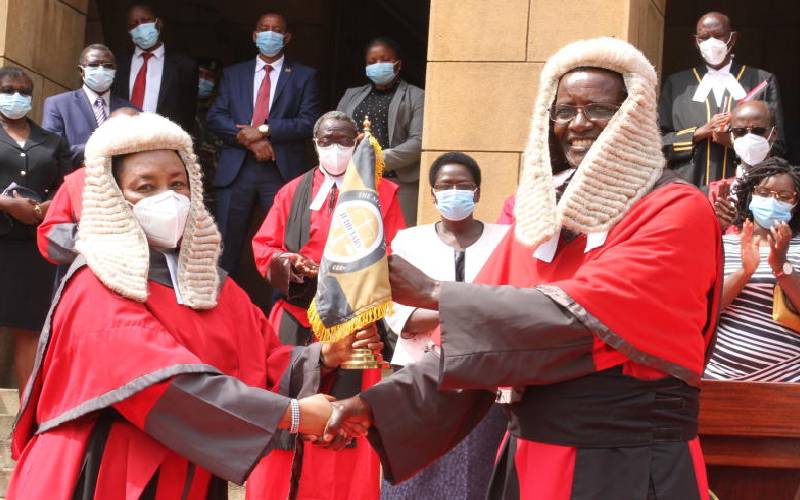×
The Standard e-Paper
Home To Bold Columnists

Chief Justice David Maraga hands over the Judiciary flag to acting CJ Philomena Mwilu (left) during his retirement ceremony at the Supreme Court yesterday. [Collins Kweyu, Standard]
Time, just like a puff of smoke, runs out into the air, but it tells of its existence, somehow.